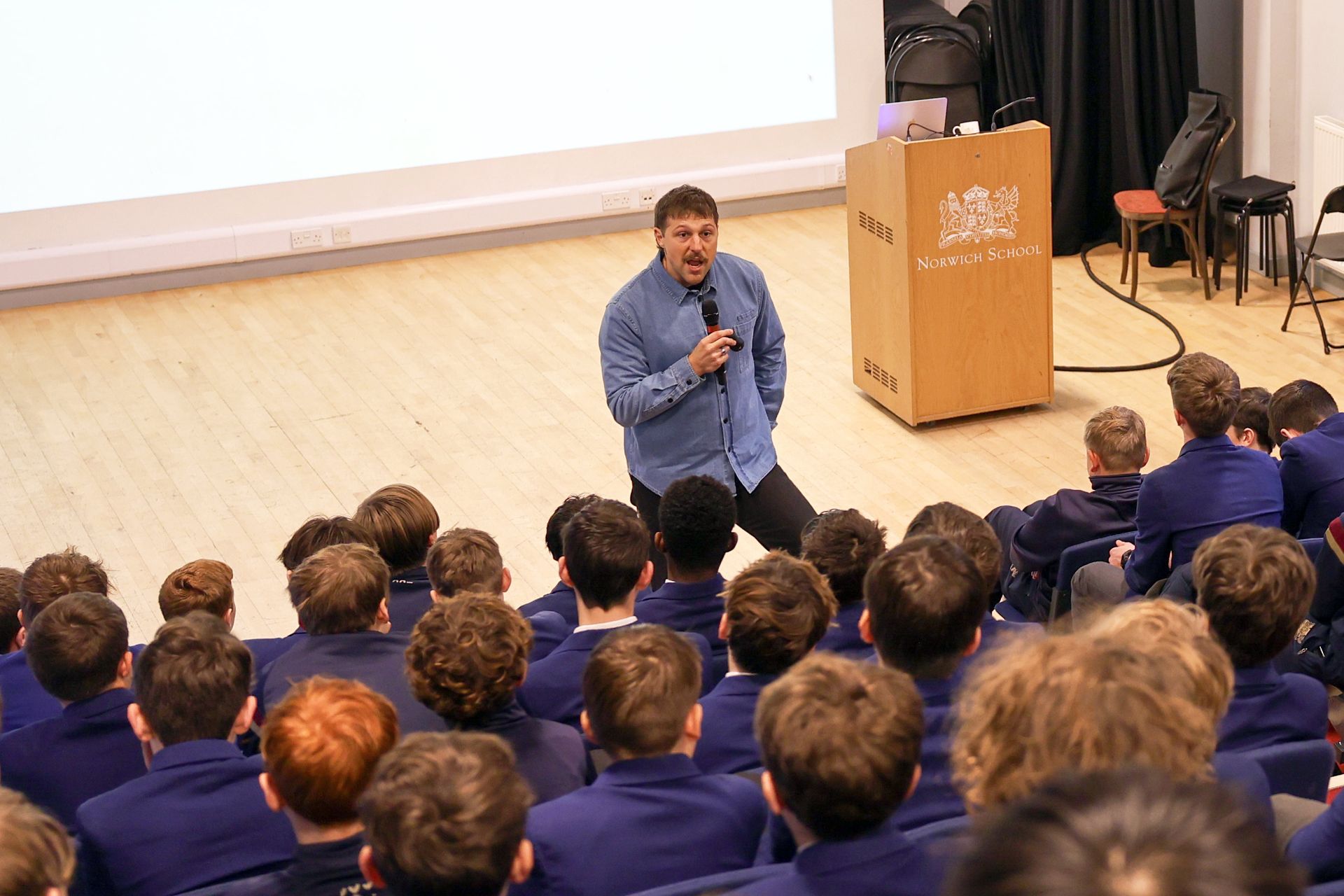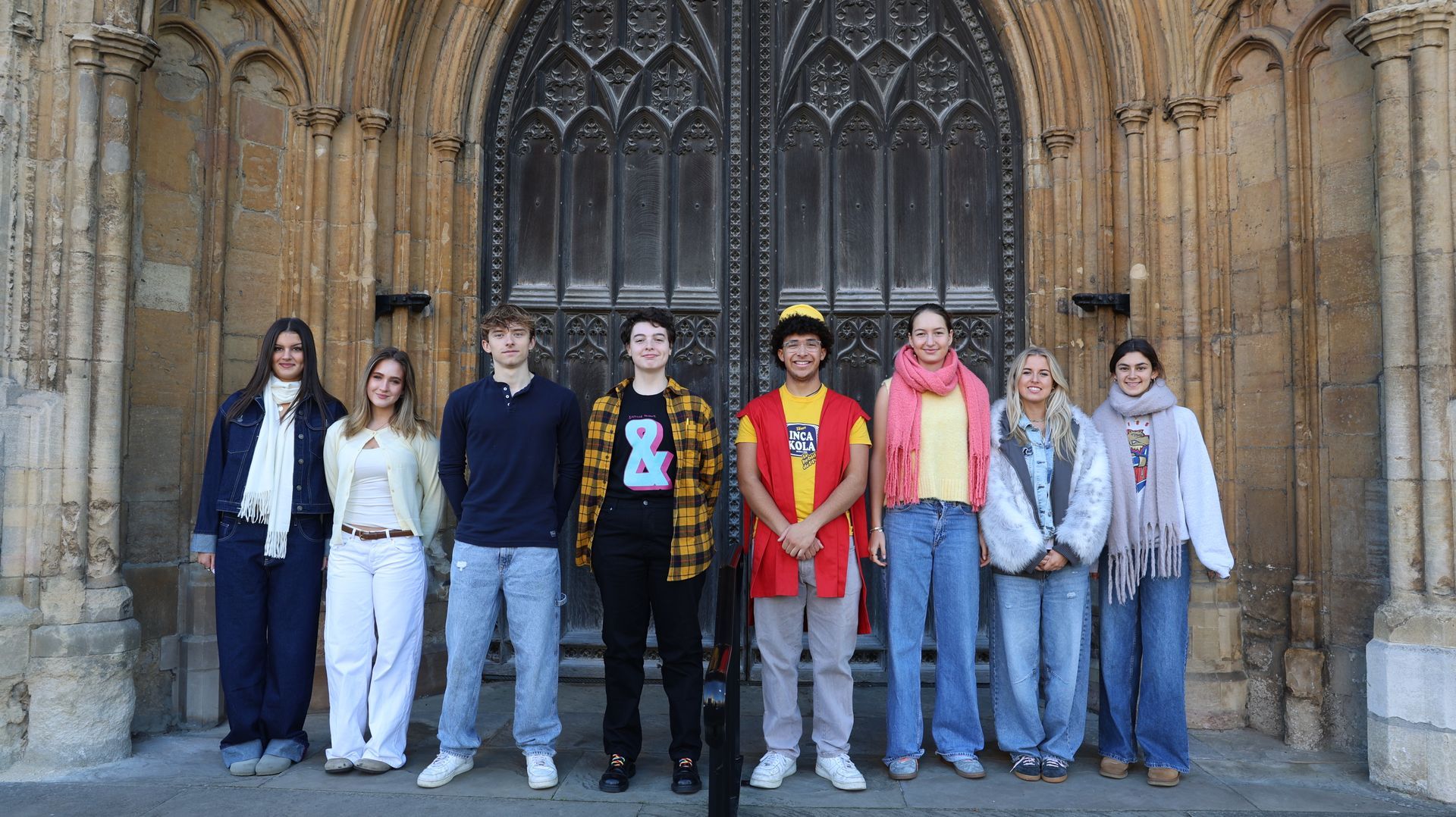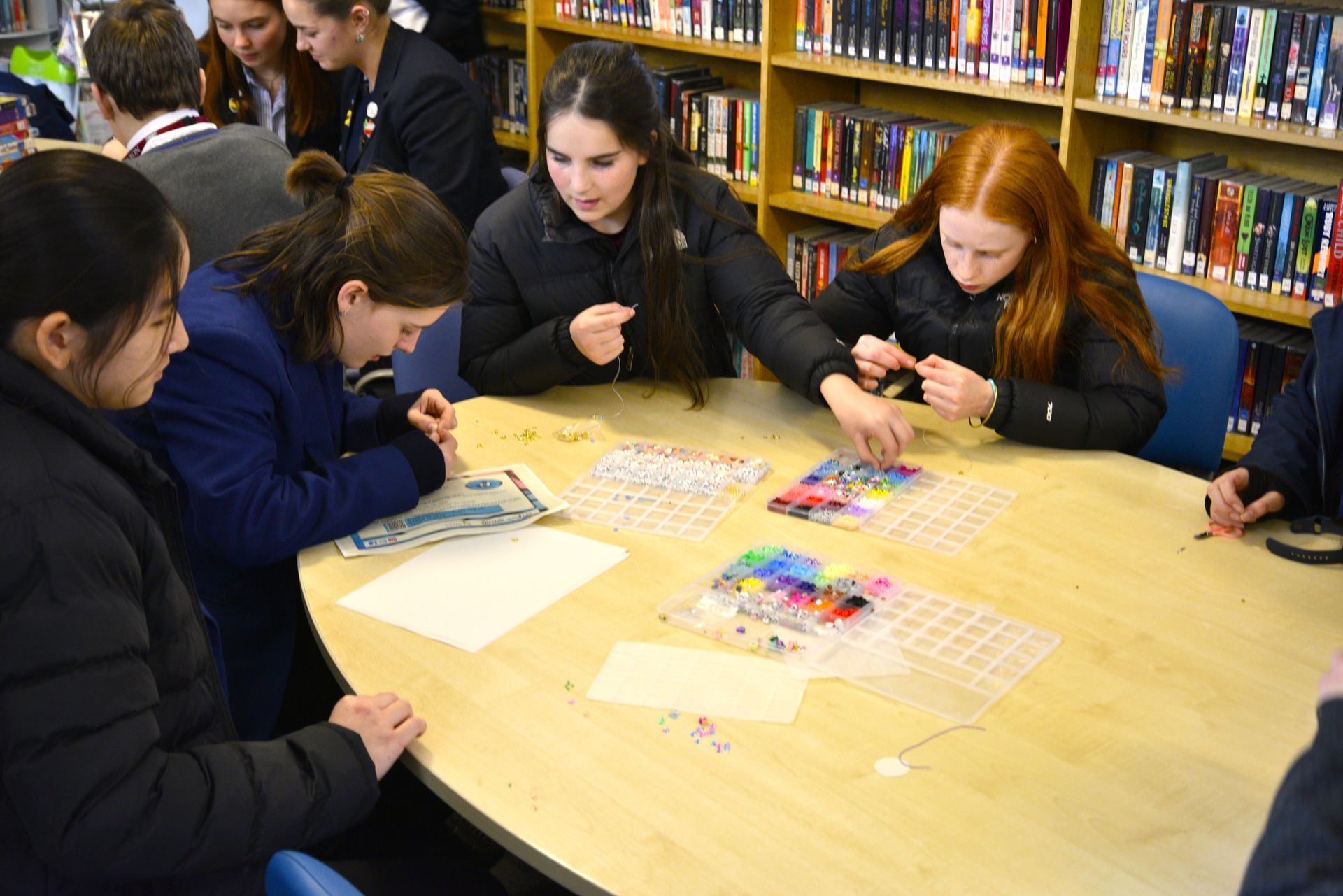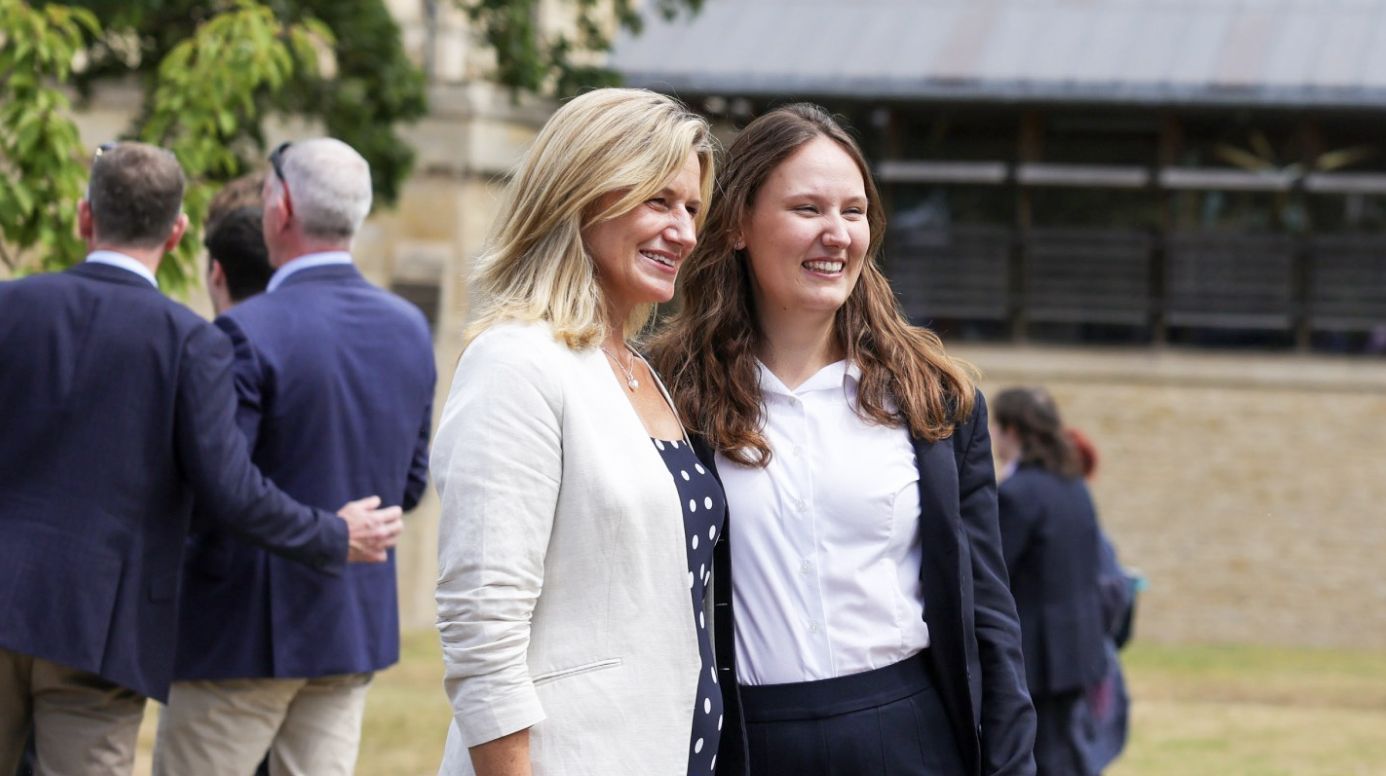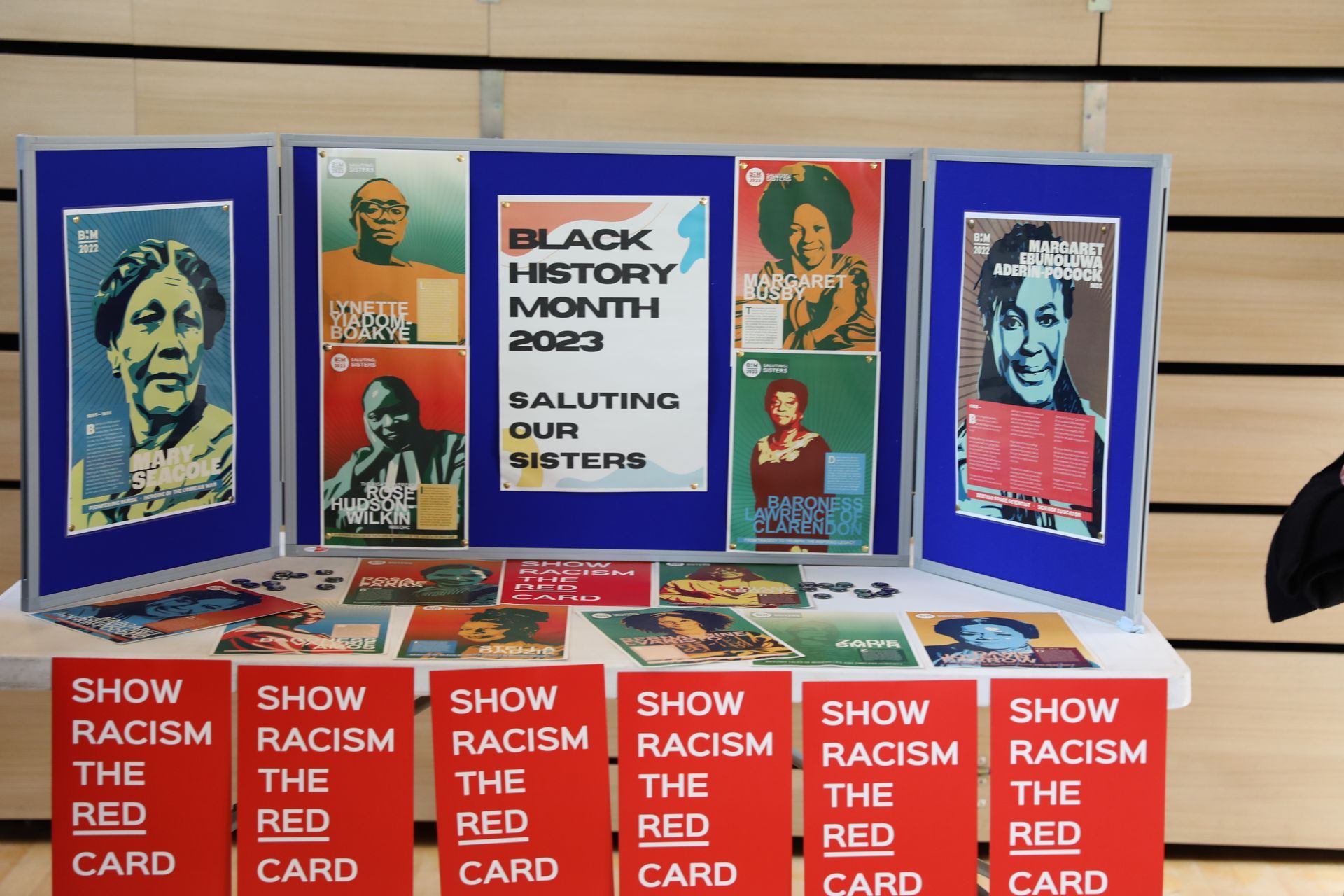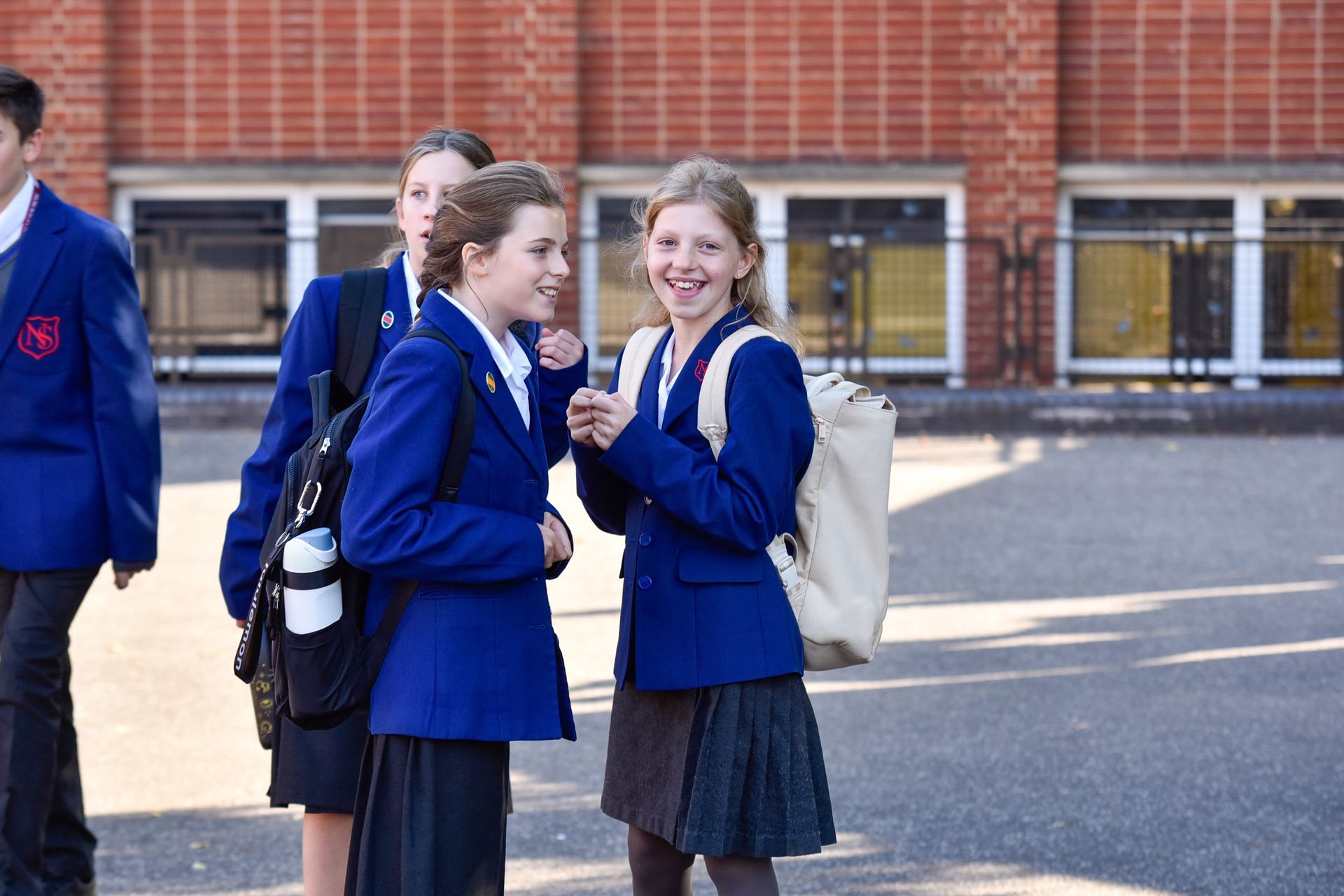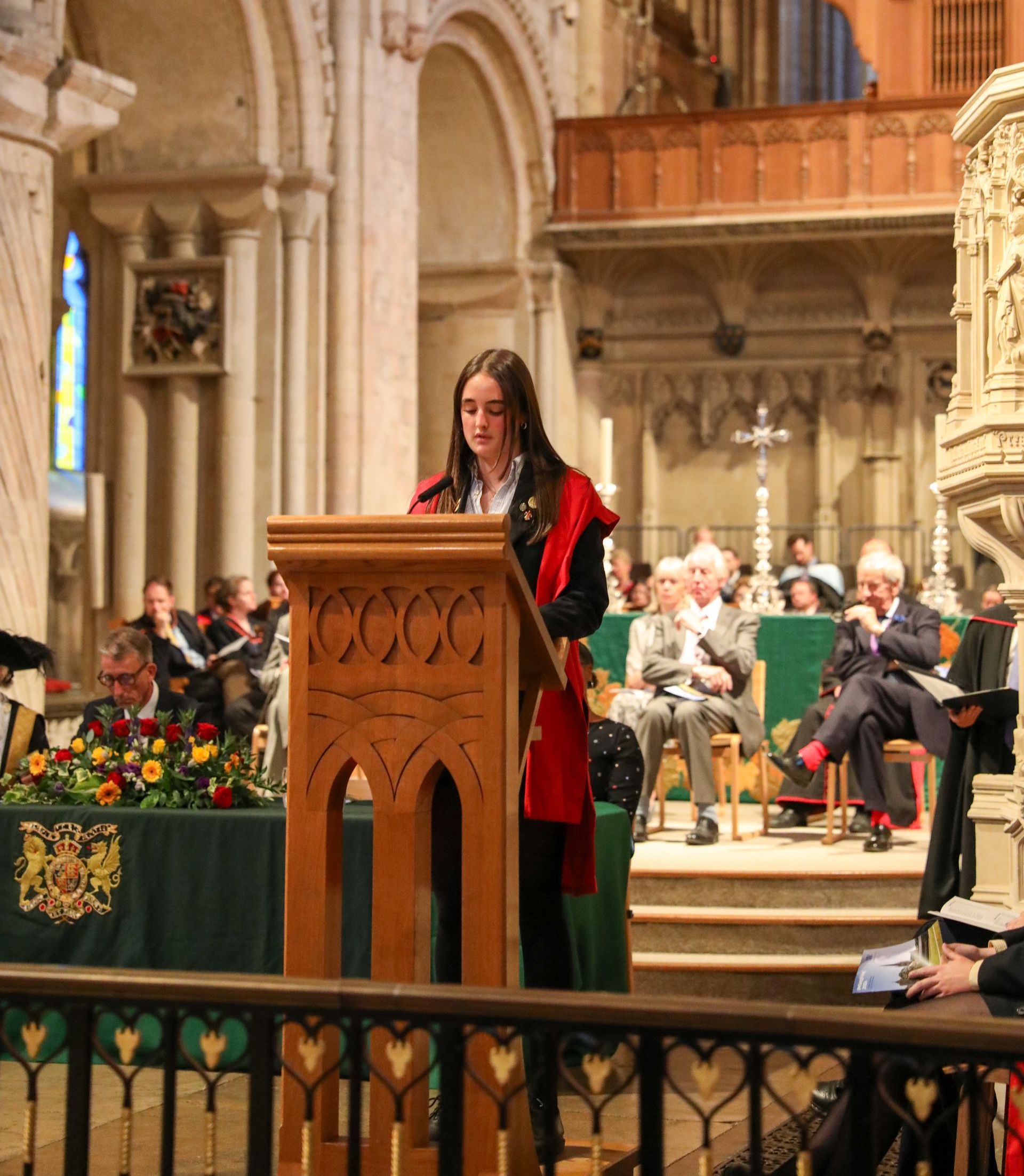By Eleanor Lewis
•
March 21, 2025
During this year's Celebrating Neurodiversity Week, a variety of engaging events took place at Norwich School to promote awareness and inclusion. The refectory was brightened by the installation of colourful umbrellas as part of the ADHD Foundation's Umbrella Project, symbolizing the variety and diversity of minds within our community. Each Umbrella Project display is designed to represent the one in five of us who have a neurodevelopment condition, such as ADHD, Autism, Dyslexia, Dyspraxia or Tourette's Syndrome. These fall under the umbrella term of neurodiversity. The project aims to change the perception of neurodivergent people and celebrate all the many strengths that come from thinking differently. The school's Neurodiversity Group organized a creative badge and bracelet-making drop-in session at the Undercroft Library, fostering creativity and connection. We also launched the termly SEND Cafe, which aims to provide a supportive space for parents of neurodivergent pupils. ON Betsy James delivered an inspiring assembly, sharing her journey of learning to celebrate her neurodivergence and the positive impacts it has on her life; For clarity, I’m autistic and have ADHD. Trying to sum up what that means is tough — because I don’t know what it’s like not to be neurodiverse. It’s like asking, “Why do you like being you?” I don’t know … I guess I’ve got good teeth… Focusing on the positives of neurodiversity can be challenging. It’s much easier to think of all the struggles because, honestly, if everything had been fine, I wouldn’t have ended up at the doctor’s office, begging for answers. Under normal circumstances, I’d make self-deprecating jokes about my ADHD, how it makes me talk too much, or how my overstimulated brain makes me forget my noise- cancelling headphones — which inevitably causes panic and chaos. Listing negatives is easy. Being kind to myself? That’s much harder. So, I asked my parents to help brainstorm the positives, and as my biggest supporters, they were quick to remind me of the things I’ve come to take for granted. I’m a great communicator - because I’ve had to be. When your brain doesn’t work like everyone else’s, you explain yourself a lot. I write well, speak well, and listen well — because if I don’t, neither me nor the people I’m talking to know what’s going on. When I was getting my diagnosis, I was able to describe to the doctors exactly what I felt. People used to call me “emotionally intelligent,” but really, I’m articulate out of necessity. I’m academically organised — because I have to be. My brain is constantly racing, so I rely on planners and to-do lists otherwise I’ll forget even the simplest of tasks. Plus, there’s something deeply satisfying about ticking tasks off a list. If you don’t do that already, try it please. It’s an absolute game-changer. I’m deeply observant and learn quickly. I might miss some social cues naturally, but books and plays have also taught me a lot. Authors and playwrights alike have created brilliant characters, and I’ve learned a lot from fictional people. It’s a weird way to develop social skills, but it works, most of the time. I still need a hint or a nudge here and there but that’s what my friends and family are for. I’m incredibly loyal and deeply empathetic. I feel people’s emotions in a way that used to be exhausting, but now, I see it as a strength. My way of showing I care might be unconventional — like the time a friend had a panic attack, and I calmed them down by describing the entire plot of a 600-page book — but it works. I owe my entire degree to my neurodiversity. I study English Literature and Drama — two worlds that have always made sense to me. Books gave me a place to hide when I needed it, and the stage became my safe space. When I perform, a learned script means no surprises. Even on bad days, I can step on stage and feel totally in control. My acting skills are stronger because I’ve spent my life mimicking people. Observing mannerisms, mirroring speech patterns — it’s second nature to me. Recently, someone told me I embodied a blind 70-year-old man perfectly. Which is … odd, considering I’m neither blind, nor a man, nor 70 years old. But hey, I’ll take the compliment. I wonder how many of you, neurodiverse or not, see parts of yourselves in this? It can be difficult to celebrate neurodiversity sometimes, but I love my autistic quirks. I don’t know life any other way, and now I own it. When life feels like a struggle, don’t be afraid to ask for help . Norwich School has neurodiversity experts, allies, and champions who want to help you figure out how to be your best self. I’m eternally grateful to the teachers and staff who never doubted me and took the time to understand how I worked. And to those neurodiverse people listening — keep being your quirky, geeky, chatty, stubborn, quiet, loud, introverted, extroverted, fantastic selves (all words that have been used to describe me at one point or another). EVERYONE benefits when we’re all allowed to be who we are. So own it. Thank you for listening. The Close Creatives Collective produced a thought-provoking video featuring interviews on perceptions and experiences of neurodiversity, which was used to spark meaningful discussions in tutor groups. You can watch it below!
